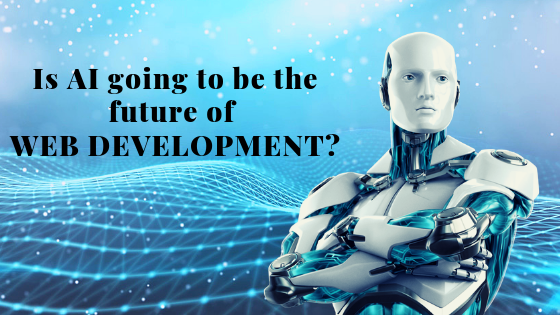Ever since the onset of the electronics and computer age, mankind has been fascinated and intrigued by the idea of achieving limitless and near to perfection capabilities in machine learning. The curiosity of man gave him wings to fly and blessed him with a better lifestyle and a longer lifespan. The next goal of man was to create, if not the best, but definitely a better version of himself but in order to achieve that, he must start with the most complex part of human anatomy, the one part that separates him and makes him dominant of all other species on the planet- The Human Intelligence.
The never-ending quest for excellence in the field of machine learning and continuous enhancements in the processing and memorizing abilities of computers in the last two decades ushered in an era of artificial intelligence. From space stations to play stations, the presence of Artificial Intelligence (AI) technology started to impact our lives gradually yet the one area where its contribution has been significant is in the field of web and mobile technologies. Assisted by the growth in internet data speed, the rise of technology in our daily lives has been rampant and phenomenal. The web and mobile technology stalwarts like Google, Microsoft, Amazon, Facebook and Apple have taken the market like a storm and are leading the research in the field of AI.
Artificial Intelligence has been precisely the next level in web development. With the advent of next-generation processors and a variety of applications along with fourth and fifth generation internet speeds, it is imperative that the systems do not lag behind their processing and computing abilities. Rather than being just a trivia box, we expect the systems to do learn, unlearn and relearn. We should be focusing on increasing the capability of a computer program or system to think and learn and create programs without any human assistance. As machines become increasingly capable, mental facilities once thought to require intelligence are removed from the definition. Artificial intelligence emphasizes on the creation of intelligent machines that work and react like humans. Some of the activities computers with artificial intelligence are designed for include: Speech and Facial recognition and cognitive abilities.
Why do we need Artificial Intelligence in Web Development?
AI technologies offer a major advantage in person-machine interactions. Without learning capabilities, applications will approach a problem in the same way time after time, and make the same mistake without modifying or optimizing the solution based on prior experience.
Machine Learning is an enabling AI technology that allows web applications to adapt over time by observing and learning from users’ habits, idiosyncrasies, and preferences. User experience improves as a result of the applications just being smarter.

More and more users prefer searching for goods directly through web platforms like Amazon instead of searching. Large e-commerce companies are changing our attitude to online purchasing and, as a result, website development is enhanced considerably. Successful e-commerce companies actively implement innovative technologies in their work such as chatbots, voice search and other AI solutions.
Some benefits of Artificial Intelligence implementation for website development are:-
- Makes search faster with relevant results
- Makes interactions with visitors better
- Provide a more relevant customer experience
- Provide a personalized store experience
- Effective marketing to targeted consumers
- Understands user behavior and consumer orientation
How does Artificial Intelligence integrate with commercial enterprises?
Modern mainstream website development has focused on the building of a customer-facing front-end presence on the Internet and the integration of the front-end with enterprise back-office operations. The AI toolkits offered by global industry leaders have made possible the adoption of AI in enterprise web applications. It’s no longer needed to hire AI specialists or researchers to empower your websites with natural language understanding capabilities.
Instead, mainstream web developers can integrate AI into chatbots on your existing web and mobile technology platforms. Developers do not need to be retrained to code in esoteric AI programming languages to take advantage of the technology. Instead, they work with APIs and tools which they are already familiar with, for instance, Python, Ruby, C++. Java, .Net, Node.js, JavaScript, CSS, HTML.
What AI toolkits are available in the market?
Google, Facebook, and companies of that ilk have come up with AI toolkits that enable the plugging of ready-made natural language understanding and machine learning features into web applications.
wit.ai and Dialogflow (formerly api.ai) are free services owned by Facebook and Google respectively. In contrast, Amazon Lex, IBM Watson, Microsoft LUIS are commercial paid services.
What is the scope of AI in natural language learning?
AI has made a significant impact in understanding natural language learning and can work not just in English but in many other languages. The average web user interacts with the enterprise mainly through web menus, buttons and text fields. Interactive tools such as chatbots are automated software agents which interact with web visitors, usually in a natural language such as English and perform tasks as requested by the visitors. Chatbots have been deployed in the enterprise, often to process customer inquiries, sales and support.
Without AI, chatbots can only understand a narrow set of language constructs which system developers have predefined. If a sentence deviates only so slightly from the known set of sentences, a chatbot will not be able to parse it. A personal digital assistant also works in the same manner and uses AI efficiency to understand user behavior and provides relevant content or services to them. Their commercial success is evident from the many recent AI-based personal digital assistants – Siri from Apple, Alexa from Amazon, Cortana from Microsoft, and the Google Assistant.
What are the current challenges in the implementation of AI?
Deploying AI using the above toolkits is not without challenges. Despite the toolkits’ best effort to hide the intricacies of artificial intelligence, developers still need to learn new lingo and concepts such as agents, intents, entities and actions. It is reassuring, however, to know that online documentation is readily available for bringing developers up to speed with the toolkits. Learning to integrate and customize the technology is very much feasible.
A more formidable challenge for integrating the toolkits is that the software requires additional customization in order for it to understand the specific concepts in your particular application domain. These toolkits are designed to be general-purpose starting points for understanding day-to-day language constructs, and may not be specific enough to parse the domain-specific concepts or the typical tasks that your web visitors may wish accomplished.
Consequently, human trainers must provide the software with a concept hierarchy that is specific to your application. In addition, to improve the accuracy of sentence parsing for your particular application domain, trainers must explicitly provide sentence examples of the typical requests that your applications are designed to handle.
This training component is very time-consuming and tedious, yet necessary in order to reduce the chance of errors in understanding customer’s requests.
To overcome the initial training hurdles and to jumpstart the adoption of AI toolkits, toolkit vendors have started to provide pre-built domain models that target specific industries and tasks. For example, Dialogflow offers pre-built agents that target industries such as coffee shops, restaurants, hotels, airlines, and common tasks such as product support, map navigation, web search, etc. Microsoft LUIS features pre-built domains for taxis, restaurant reservation, movie theatres, fitness tracking, etc.
The trend to provide prepackaged domains will definitely shorten the time to deploy AI functionalities in web applications.
Future of Artificial Intelligence in web development
The rise of AI-enabled software has the potential of revolutionizing how customers interact with online enterprises. It is not inconceivable that, in the near future, a chatbot is the first point of contact between the customer and the online enterprise. The chatbot will analyze the needs of the customer based on prior natural language interaction, whether it be for product inquiry, troubleshooting, or sales. The chatbot has self-knowledge of its own capabilities and limitations and will resolve all issues that are within its capabilities.
For those issues that it cannot resolve, the chatbot will escalate them to the appropriate second-level human analyst for a successful resolution. AI-enabled chatbots or virtual digital assistants can be the next-generation enterprise digital assistants of your brand on the Internet. The chatbot could be in the form of a digital application or maybe even a holographic virtual human assistant who would just pop out of the peripheral projector and guide you through the entire process like a live human agent. Your tech sci-fi movie scenes might soon become a reality.


